Source : businessinsider.fr
The 2004 Athens Olympics went nearly $15 billion over its initial $1.6 billion budget, according to economist and professor Andrew Zimbalist, who wrote a book on the true cost of hosting large sporting events.
The majority of the cost overruns fell on the Greek government, which built all the expensive, highly specific buildings you need to host the Olympics — a village, a media center, an Olympic stadium, a canoe/kayak slalom center, etc.
When the athletes went home at the end of August 2004, organizers learned a cruel lesson — Athens has absolutely no use for a canoe/kayak slalom center.
Amid an economic crisis that has seen other parts of the city diminished, many of these 2004 stadiums have long since become white elephants. As these photos from 2014 show, the Olympic Village is empty, and the venues for softball, beach volleyball, and kayaking are all overrun with weeds.
With Greece unable to pay its debts and the IOC now struggling to find countries willing to host the Olympics, 2004 might be viewed as one of the last Olympics of an era when democratic nations saw the games as a worthwhile investment.
The beach-volleyball center, where weeds are growing through the sand.
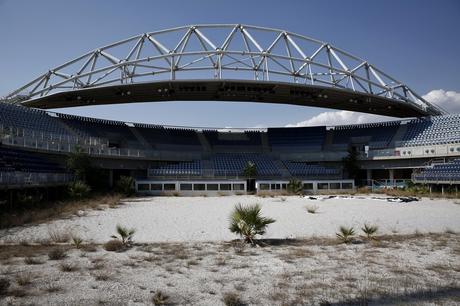 REUTERS/Yorgos Karahalis
REUTERS/Yorgos KarahalisSeven thousand people watched Misty May and Kerri Walsh win gold here in 2004.
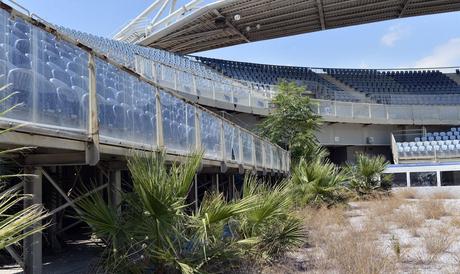 Milos Bicanski/Getty Images
Milos Bicanski/Getty ImagesThe practice courts outside the stadium are also overgrown.
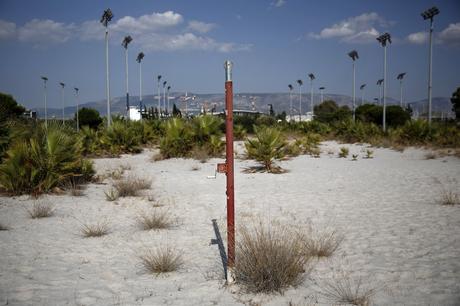 REUTERS/Yorgos Karahalis
REUTERS/Yorgos KarahalisThe Olympic Village, where the athletes like Michael Phelps stayed during the games, is a ghost town.
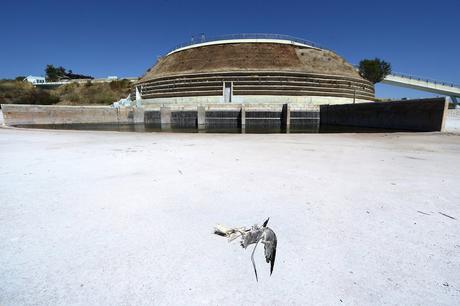 Milos Bicanski/Getty ImagesSource: Telegraph
Milos Bicanski/Getty ImagesSource: TelegraphThe original plan was to turn it into public housing after the games.
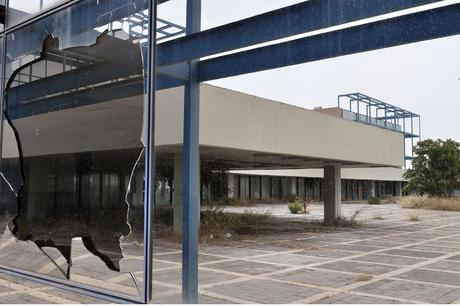 Milos Bicanski/Getty ImagesSource: Telegraph
Milos Bicanski/Getty ImagesSource: TelegraphThousands of families applied to move in.
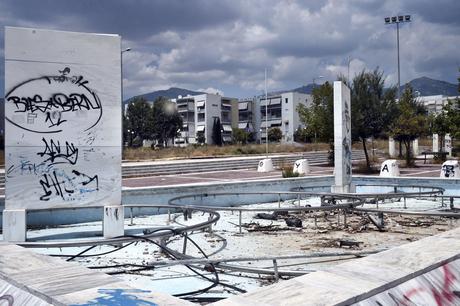 Milos Bicanski/Getty ImagesSource: Telegraph
Milos Bicanski/Getty ImagesSource: TelegraphBut it all went wrong.
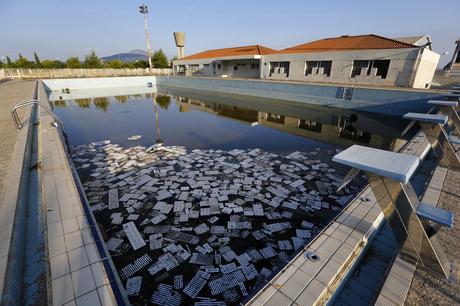 REUTERS/Yannis BehrakisSource: Telegraph
REUTERS/Yannis BehrakisSource: TelegraphA school that authorities promised to build was never constructed, and a bunch of businesses left the area after the Olympics.
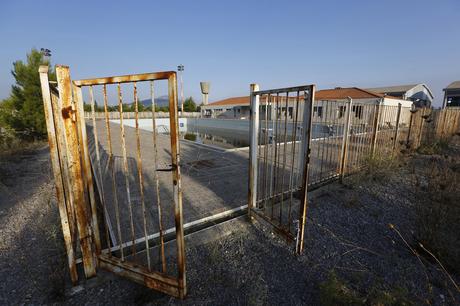 REUTERS/Yannis BehrakisSource: Telegraph
REUTERS/Yannis BehrakisSource: TelegraphBy 2011, half the complex had been abandoned.
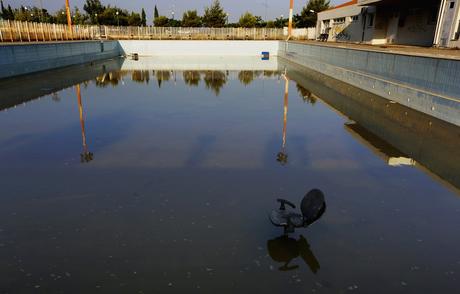 REUTERS/Yannis BehrakisSource: Telegraph
REUTERS/Yannis BehrakisSource: TelegraphCopper piping and other things of even remote value were stolen.
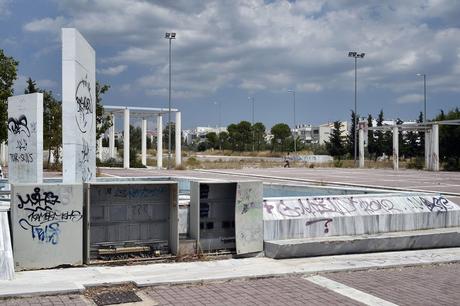 Milos Bicanski/Getty ImagesSource: Telegraph
Milos Bicanski/Getty ImagesSource: TelegraphThe pool is crumbling.
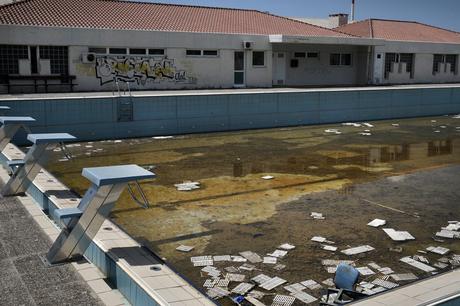 Milos Bicanski/Getty ImagesSource: Telegraph
Milos Bicanski/Getty ImagesSource: TelegraphThe entrance has been blocked.
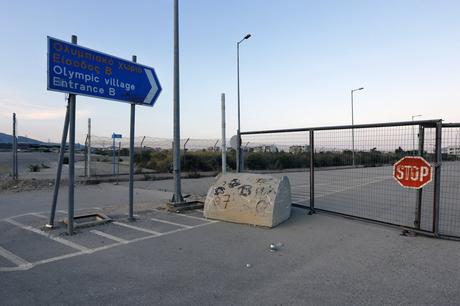 REUTERS/Yannis BehrakisSource: Telegraph
REUTERS/Yannis BehrakisSource: TelegraphThe softball stadium is a weed patch.
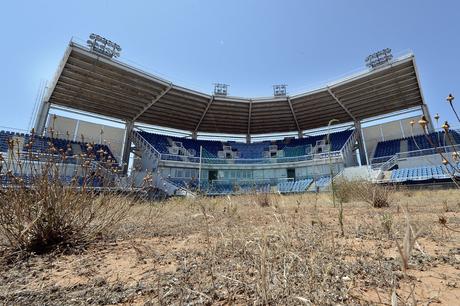 Milos Bicanski/Getty Images
Milos Bicanski/Getty ImagesA worker told the London Evening Standard in 2012, "It is not abandoned. It's just that nobody ever plays softball."
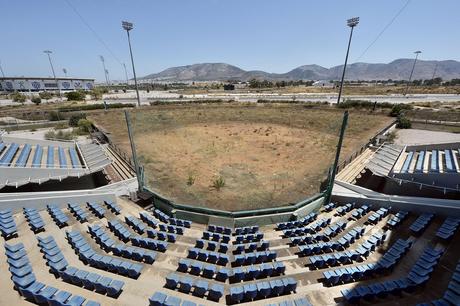 Milos Bicanski/Getty ImagesSource: London Evening Standard
Milos Bicanski/Getty ImagesSource: London Evening StandardThe quote sums up the problem with these stadiums.
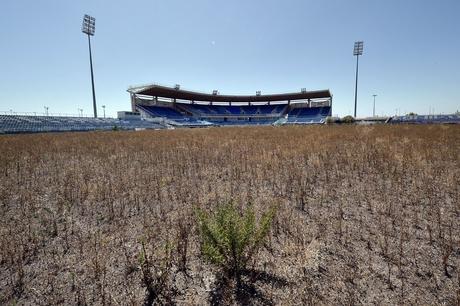 Milos Bicanski/Getty Images
Milos Bicanski/Getty ImagesThe venues are maintained by the government, but there's just no use for them.
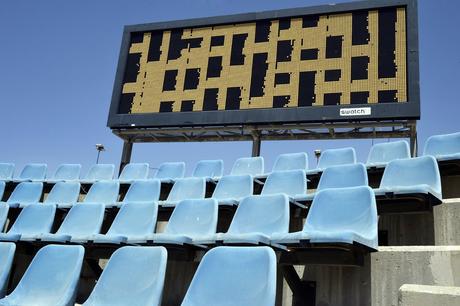 Milos Bicanski/Getty Images
Milos Bicanski/Getty ImagesNo one plays sports like softball or baseball in Greece, let alone pays to watch it.
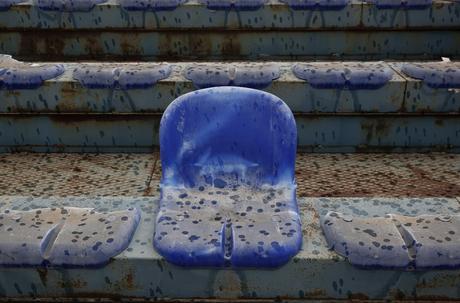 REUTERS/Yorgos Karahalis
REUTERS/Yorgos KarahalisThe baseball stadium has also grown wild.
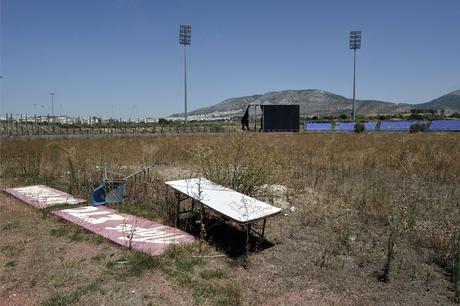 Milos Bicanski/Getty Images
Milos Bicanski/Getty ImagesThe "batter's eye," which helped hitters see the pitch in 2004, now just flaps in the breeze.
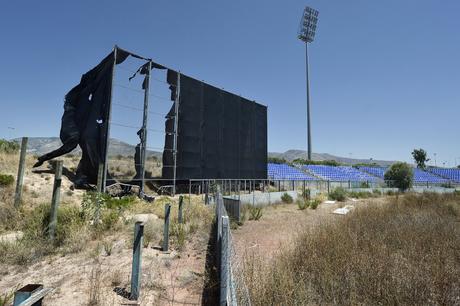 Milos Bicanski/Getty Images
Milos Bicanski/Getty ImagesThe Canoe/Kayak Slalom Center was once a world-class venue.
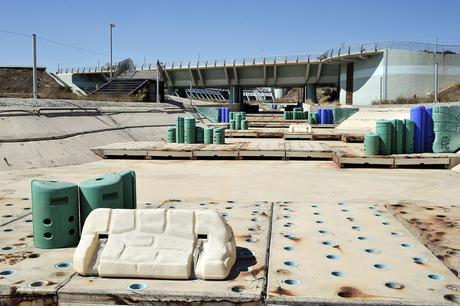 Milos Bicanski/Getty Images
Milos Bicanski/Getty ImagesIt was the first Olympic venue to be filled with salt water instead of fresh water.
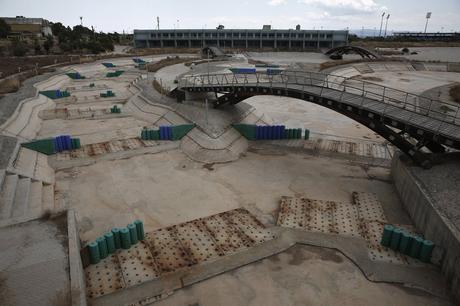 REUTERS/Yorgos KarahalisSource: NYT
REUTERS/Yorgos KarahalisSource: NYTThere's now standing water around the venue.
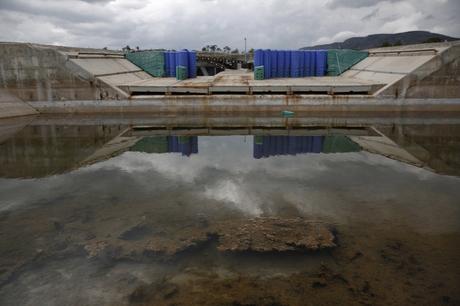 REUTERS/Yorgos Karahalis
REUTERS/Yorgos KarahalisThe stands look like ruins.
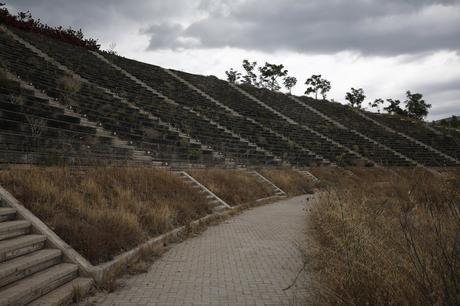 REUTERS/Yorgos Karahalis
REUTERS/Yorgos KarahalisThe massive scoreboard was used for just two weeks.
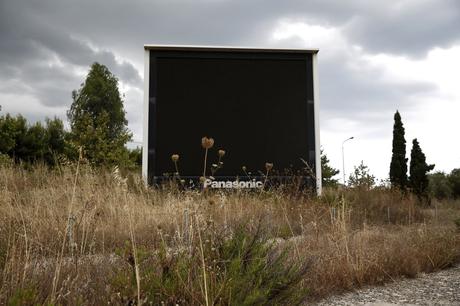 REUTERS/Yorgos Karahalis
REUTERS/Yorgos KarahalisThe nearby rowing center still gets some use, but the scoreboard is toast.
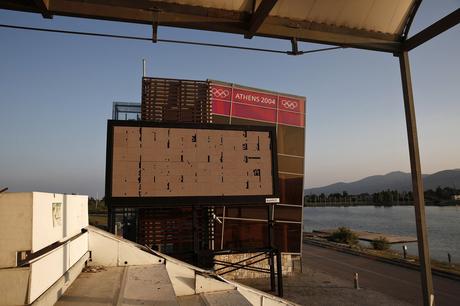 REUTERS/Yorgos Karahalis
REUTERS/Yorgos KarahalisSome venues, like the Olympic stadium, are still in use. But others haven't seen any action in 10 years.
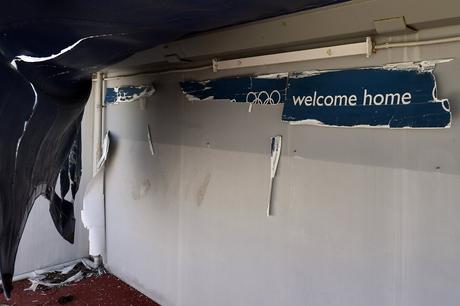 Milos Bicanski/Getty Images
Milos Bicanski/Getty ImagesA practice pool at the Aquatic Center has been drained.
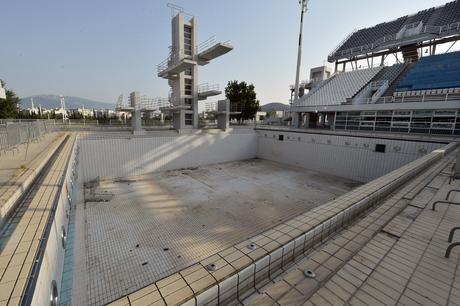 Milos Bicanski/Getty Images
Milos Bicanski/Getty ImagesThe field-hockey arena hasn't been touched.
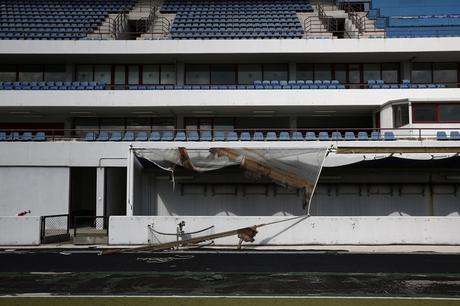 REUTERS/Yorgos Karahalis
REUTERS/Yorgos KarahalisThe scoreboard is empty.
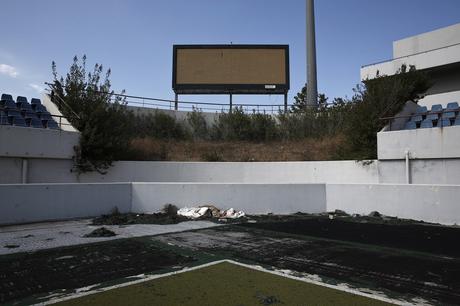 REUTERS/Yorgos Karahalis
REUTERS/Yorgos KarahalisSochi is at risk of the same thing ...
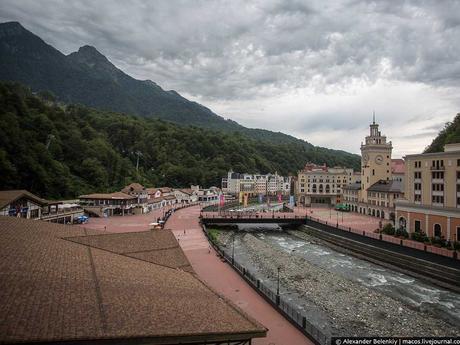 Alexander Belenkiy/Macos
Alexander Belenkiy/Macos

